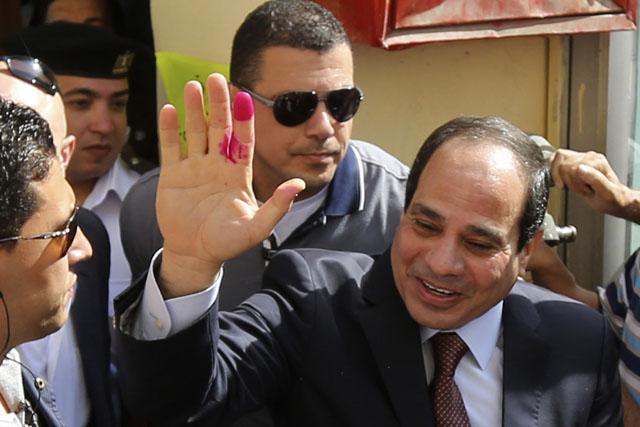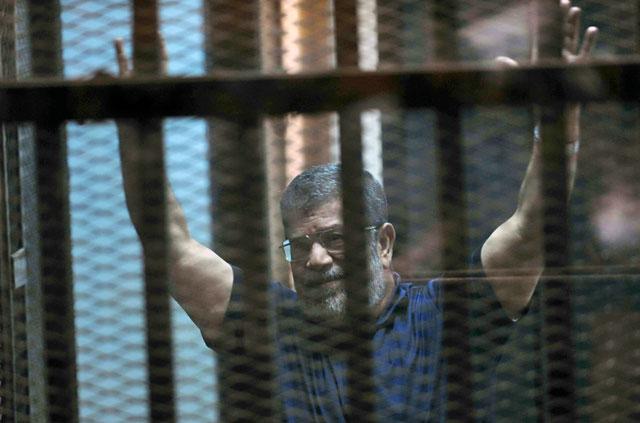You are here
Egypt signals parliament election to be held by March
By Reuters - Nov 11,2014 - Last updated at Nov 11,2014
CAIRO — Egyptian President Abdel Fattah Al Sisi has told visiting US businessmen that a parliamentary election will be held by March, his spokesman said on Tuesday, trying to reassure them that the delayed poll would not be put off indefinitely.
Egypt has been without a parliament since June 2012, when a court dissolved the democratically elected main chamber, reversing a major accomplishment of the 2011 uprising that toppled autocrat Hosni Mubarak.
Under Islamist President Mohamed Morsi, legislative power was transferred to the upper house pending a fresh election. But before that poll took place, Morsi was toppled by the army following protests against his rule.
A political roadmap declared after Morsi’s ouster envisaged a parliamentary election by November — six months after the May presidential poll which brought Sisi, the army chief behind Morsi’s overthrow, to the presidency.
No date has been set for the parliamentary poll, but Sisi told the US businessmen it would go ahead before a major economic summit in March that Egypt hopes will boost investment and aid, his spokesman Alaa Yousef said.
Election commission spokesman Medhat Idriss said preparations still needed to be completed before the vote could be scheduled. He declined to say when the vote was likely to happen but Egyptian newspapers have quoted unnamed sources as saying the polls would happen around March.
“We are still waiting for the constituencies law and preparations for the elections are ongoing,” he said.
Egypt’s 2011 revolt ignited hopes for more freedoms and ushered in presidential and parliamentary polls that brought Morsi and the Muslim Brotherhood into office.
Since Morsi’s ouster, authorities have cracked down on the Brotherhood, killing hundreds and arresting thousands of its supporters. It has banned Egypt’s oldest Islamist movement, declaring it a terrorist organisation.
Secular and liberal activists are also facing charges of violating a law passed last year that restricts protests.
Many Egyptians welcome Sisi’s strong hand after three years of turmoil unleashed by the 2011 revolt, but critics say he is delaying elections to in order to consolidate his rule.
In the absence of parliament, Sisi has used his legislative authority to introduce economic reforms that have impressed investors, whilst also curtailing political freedoms.
Political sources say the long-awaited law outlining constituency boundaries could be passed any day, but that the delay suggests government anxiety about the election outcome.
With Mubarak’s National Democratic Party gone, loyalists have scrambled to form alliances to secure Sisi a sizeable bloc of support.
Related Articles
Egyptians voted for a new president Monday in an election expected to sweep to power the ex-army chief who overthrew the country’s first democratically elected leader and crushed his Islamist movement.
Just over half Egyptians approve of former army chief Abdel Fattah Al Sisi, an opinion poll showed on Thursday, just days ahead of a presidential election he is expected to win easily.
An Egyptian court sentenced ousted president Mohamed Morsi and over 100 others to death Saturday over a mass prison break during the 2011 uprising that toppled Hosni Mubarak and later brought Morsi's Islamist movement to power.




















